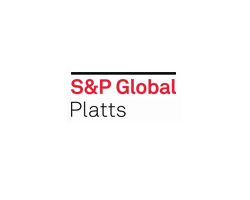
 



.gif)






|
Signature Sponsor


April 18, 2024 - After a trading lull during the Lunar New Year in early February, US-Brazil met coal freight has dipped further, as time-charter rates dropped to mid-$13,000s/d on April 16, from the high $16,000s at the beginning of March. This fall was fueled by heightened by more-profitable grain-loading activity in East Coast South America, according to market sources. Rates climbed to the $14,000s on April 17, however, on shifted positive sentiment in the North Atlantic. Shrinking time-charter premiums for US-Brazil met coal deliveries, currently about $350/day above the standard US-transatlantic route from Hampton Roads to Rotterdam, starkly differs from the $2,500/d premium seen at the beginning of March. Regarding the US-Brazil coal trade, a shipowner said it was a "common trade scenario. The US exports coal for Brazilian steel plants and imports steel from the same plants using Handys, Supramaxes or Ultramaxes. It's a cyclical trade characterized by various vessel sizes." The shipowner expressed confidence in the market's ability to sustain itself, despite cleaning costs for ships carrying dirty cargo, and noted a willingness among owners to negotiate discounts, leveraging improved positioning in Brazil. ArcelorMittal's recent fixtures of the 74,867 dwt, 2012-built Cymona Energy for a US Gulf-to-Brazil voyage at $15.19/mt for a 70,000 mt coal cargo on a free-in-and-out and the 87,396 dwt, 2023-built Serenity Diva for a Australia-to-Brazil voyage at a rate in the $13.00s/mt for a 70,000 mt coal cargo, fixed on subjects basis underscore shifting market dynamics, not only within the Atlantic but also the Pacific. "Owners appear to be ballasting from the Pacific to the East Coast South America for grain trips to the Far East," said a charterer, commenting on the Serena Diva fixture. "Consequently, the Pacific market, which was subdued at the beginning of the last week, experienced a slight turnaround due to the ECSA push. If the South Atlantic market declines this week, it could also impact the Pacific market negatively. Pacific rates continue to rely on the ECSA ballast option for support, and any slowing of demand there will be felt in the Pacific." On April 16, the 82,172 dwt, 2012-built Ranger was heard fixed on subjects to open APS in East Coast South America for end April-beginning May for a time-charter trip with redelivery in Singapore-Japan for $20,000 and a ballast bonus of $1 million; however, the charterer could not be confirmed. Subsequently, news arrived earlier in the day that this failed on subjects. The ship had ballasted from Icheon, South Korea, according to S&P Global Commodities at Sea.
Praia Mole discharge
A broker highlighted challenges to loading grains in Brazil, such as the unreliable discharge of coal at the port of Praia Mole and scheduling uncertainties. "In theory, you might expect to earn a ballast bonus when fixing the next business, so this run traditionally used to be a discount over the trans-Atlantic run," the broker said. "However, the discharge at Praia Mole is notoriously unreliable. Additionally, you're likely to incur cleaning costs for grains and may need to employ a shore gang for this purpose. Moreover, your scheduling could suddenly shift two weeks backward or forward at the last second." The reluctance of grain houses to engage with ships opening in Praia Mole due to the fear of frequent itinerary changes, often resulting in the ships being left prompt before they can be fixed, he added. Sources remain confident that the trade will now be perceived similarly to a trans-Atlantic run, with significant premiums expected only if there's minimal or no ECSA market for the owner to fix after. "It is almost at par to the Hampton-Rotterdam as we're in full grain season in ECSA," the broker said. Looking ahead, the market will focus on the spread dynamics of the route, remaining vigilant due to the often unpredictable nature of mineral cargoes, which, according to sources, can be "hit and miss" due to volatility in the Capesize markets leading to cargo splits. |
 











|